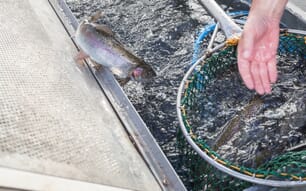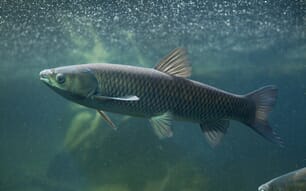"We coined the name Syndrome Idiopathic Trout (SIT) and we are still investigating this issue, but I want to be emphatic in reiterating that all analysis we have done in Chile and Europe have been negative for the diseases of greatest risk," said Mr Burgos.
In the run up to the vote on Scotland's independence, the Scottish Fishermen's Federation (SFF) has queried the affects that a Yes vote of Scottish independence would have on the fishing industry.
The SFF has published a ‘balance-of-risk analysis’ of the replies it received from the Scottish and UK fisheries ministers on questions it raised on the implications for fishing should there be independence, or if the status quo is retained.
Rural Affairs Secretary Richard Lochhead has also released a report on the five key gains that he says independence will bring the Scottish fishing industry.
Direct representation in the EU, protection of fishing quotas and a fairer share of the EU Fisheries budget are some of the gains set out in the report.
Russia announced last week that it had made changes to its list of banned agricultural and fishery imports.
The export of Atlantic salmon and trout smolts to Russia from the US, Canada, EU, Australia and Norway will now be allowed in order to ensure that commercial fish farming in Russia can continue.
The invasive shrimp species, Bloody Red Shrimp (Hemimysis anomala), has now been discovered in Northern Ireland (NI).
The invasive species was first detected in Ireland in 2008 and has now spread to Upper Lough Erne in NI.
Stephen Foster from NIEA commented: “Invasive alien species are widely recognised as one of the greatest threats to our native biodiversity. Once an invasive species has established within a habitat its spread can be rapid, out-competing native species. It is extremely important that we all do that we can to minimise the risk of spreading or introducing non-native invasive species.”




